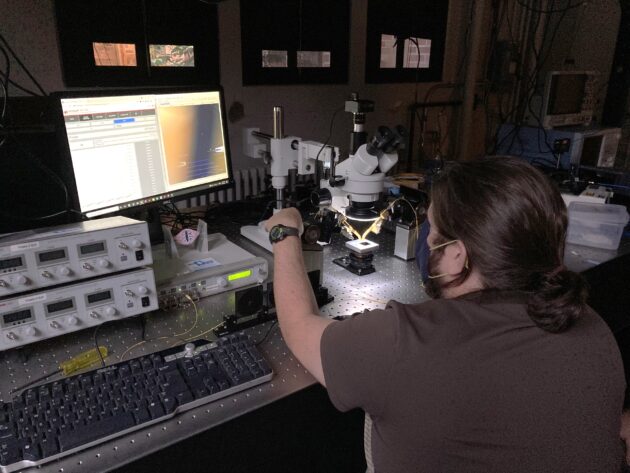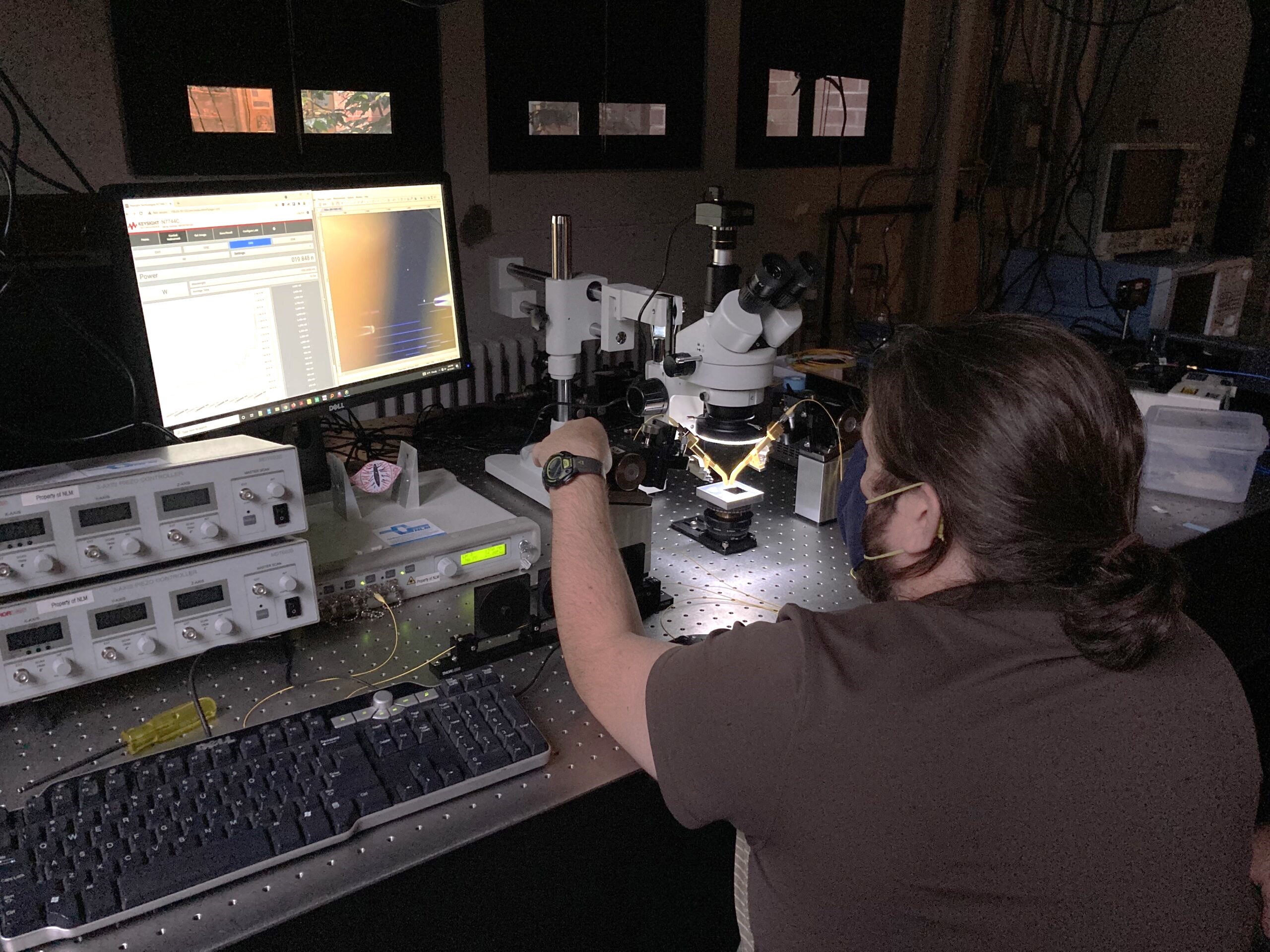[ad_1]

Seattle-based NLM Photonics says it has raised $1 million in new funding to advance commercialization of its hybrid electro-optic modulation technology, which is meant to open the way for semiconductors that can handle more data with less power.
The funding round was led by two Japanese companies: Tokyo Ohka Kogyo Co., also known as TOK, and Hamamatsu Photonics K.K. TOK is a world leader in manufacturing materials for advanced electronics, and in supplying critical goods for the semiconductor industry. Hamamatsu is a major player in the market for photonics components — and was involved in a previous investment round for NLM.
The TOK investment deal also includes collaboration on developing shelf-stable inks incorporating NLM’s proprietary materials.
“This strategic investment will catalyze NLM’s engagement with semiconductor foundries and their customers,” Lewis Johnson, NLM’s co-founder and chief scientific officer, said in a news release. “We are excited to work with TOK to accelerate deployment of our materials and continue engagement with Hamamatsu into this next phase.”
Photonics makes use of photons rather than electrons to transfer and process data. NLM’s approach to hybrid electro-optic modulation is meant to address a significant pain point in computing and networking, and also reduce the energy cost of increased network bandwidth.
NLM said the fresh round of funding will support the company’s drive to develop new materials and processes for delivering on the promise of hybrid organic electro-optic modulation. The company was founded in Seattle as Nonlinear Materials in 2018 with an assist from the University of Washington’s CoMotion Labs. Since then, it has opened a European HQ in Paris.
Yusuke Narumi, who manages TOK’s new business development department, said his company was looking forward to joining forces with NLM “to bring about new technology that can potentially reduce the amount of power needed to transmit data.” Katsu Kobayashi, CEO of Hamamatsu Photonics Corporate Venture Capital, said he was optimistic that NLM “can contribute to the development of future products for Hamamatsu.”
[ad_2]
Source link

